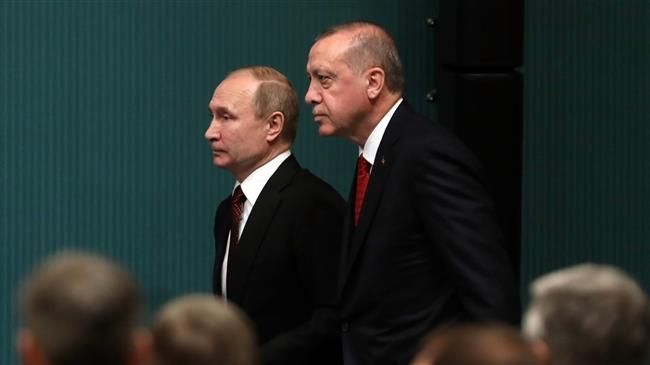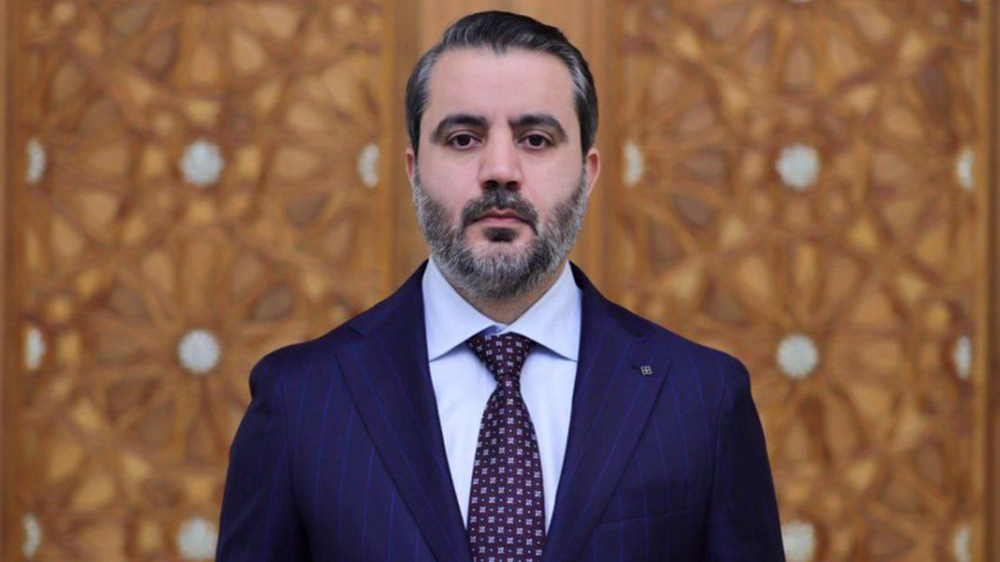Turkish president to discuss Syria's Idlib, Dara'a with Russia's Putin
Turkey's President Recep Tayyip Erdogan says he will discuss with Russian President Vladimir Putin ways to protect Syrians from a potential attack on Syria's Idlib and Dara'a provinces.
Speaking to reporters in the Turkish capital, Ankara, on Wednesday, Erdogan said the situation in Idlib and Dara’a was troublesome.
"We will be discussing Dara'a (with Russia), which is one of the most problematic issues of all. There is also the issue of Idlib, which we will discuss because in these places anything can happen at any time," the Turkish president said.
"What we want is that Syrian people would be protected from these attacks and particularly the brutal attacks of some organizations in the region," Erdogan said.
The Turkish president has already raised the issue of Idlib with Putin in a telephone conversation in mid-July, saying an attack by the Syrian army there could destroy the Astana peace process.
As part of the Astana format, four de-escalation zones have been established across Syria amid ongoing political efforts to find a peaceful solution to the conflict in the Arab country.
Turkey, Iran and Russia are the guarantors of a countrywide ceasefire in Syria. The three have been mediating a peace process since January 2016 among Syria’s warring sides in Astana, Kazakhstan.
Turkey has set up a series of observation posts in Idlib as part of the deal to reduce fighting between militants and the Syrian government in de-escalation zones.
In recent weeks, Syria's government forces have recaptured militant strongholds in the southwest.
Syrian soldiers have captured most of the southern province of Dara’a in an offensive that began in June.
In a bid to minimize civilian casualties, both Damascus and Moscow have been initiating talks with militants to make them hand back the areas they control to the government without fighting.
Dara'a was the birthplace of sedition that was born in March 2011 before morphing into a foreign-backed militancy that continues to this day.
Syria’s southwestern region is strategically sensitive because of its proximity to the frontiers with both Jordan and the Israeli-occupied Golan Heights.

The territory’s liberation would cut the much-reported collaboration between Israel and militants and deal a blow to Tel Aviv’s plans to consolidate its grip on the Golan Heights, which has been used by the regime to treat wounded militants over the past few years.
Earlier this year, Syrian government forces carried out fresh operations against foreign-sponsored Takfiri terrorists in Idlib, inflicting substantial losses on them and liberating more areas.
According to a recent report by pan-Arab news and commentary website al-Masdar News, the Syrian army prepares for a major offensive to liberate Idlib.
American warplane downed after Yemeni attacks 'baffled' US air defense: Ansarullah
VIDEO | Yemenis praise the military for its successful operations against Israel
VIDEO | Israel continues to bomb Gaza homes
VIDEO | An insider's view of the country: Meybod City in Yazd
‘All wars have rules. All of those rules have been broken’ by Israel
VIDEO | Report flags India’s violation of rights of Rohingya detainees
Turkey's foreign minister meets Syria's de facto leader in Damascus
VIDEO | US Syria plots












 This makes it easy to access the Press TV website
This makes it easy to access the Press TV website